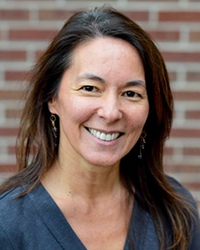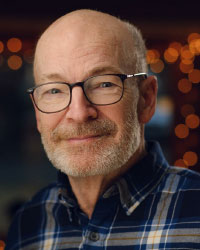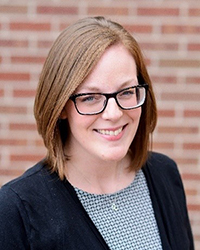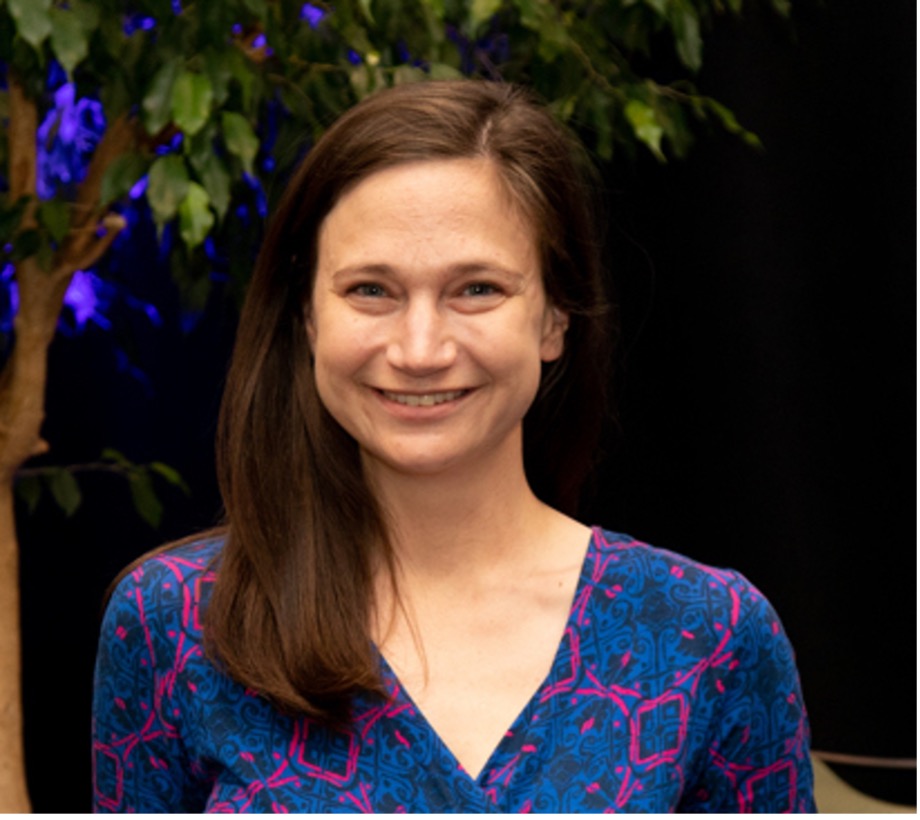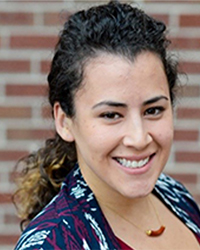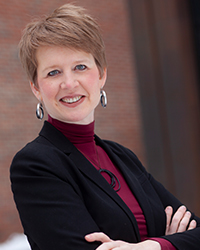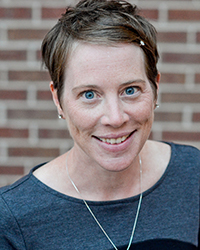Farley Center Staff
Shale Wong, MD, MSPH
Executive Director
Dr. Wong is a pediatrician and professor of pediatrics and family medicine at the University of Colorado School of Medicine, teaching child health, advocacy, policy and health care reform with focused interests in integrated care and achieving health equity. She is vice chair for policy and advocacy in the CU Department of Pediatrics. She served as health policy advisor to First Lady Michelle Obama for development and implementation of her signature child obesity initiative, Let’s Move, and assisted in launching Joining Forces to improve wellness and resilience of military families. She was a senior program consultant to the Robert Wood Johnson Foundation. As a lifelong dancer, she is inspired to advance health through the arts.
David K. Aylward, BA, JD
Senior Scholar
Mr. Aylward’s interests lie in the intersection of health, social innovation, public policy, communications and IT, and finance. He is expert in the design of the complex multi-sector coalitions and systems required for systemic transformation. As CU Department of Family Medicine faculty, he focuses on the design, integration, and financing of clinical and social systems to help challenged people and communities thrive. He is currently a leader of a national multi-sectoral “Design Team” initially launched by the Federal Reserve Bank of New York to develop a model to transform America’s health and social services systems, flipping the model from today’s expensive focus on reacting to illness and social failure to investing “upstream” in encouraging flourishing. As Chief Counsel and Staff Director, he led the staff of the U.S. House Telecommunications and Finance Subcommittee during the advent of competition in telecommunications, the break-up of AT&T, the emergence of the cable television industry, and the introduction of electronic and competitive securities trading.

Anne-Stuart Bell, Ph.D., M.Ed.
Postdoctoral Psychology Fellow
Dr. Bell (they/them) is a postdoctoral psychologist in the Department of Family Medicine, practicing at the A.F. Williams and Aurora Wellness Community Center clinics in addition to their work with the Farley Center. They recieved their doctoral degree in counseling psychology and masters in educational psychology from Texas A&M University, where they also conducted research on rural health, multicultural counseling, chronic pain and disease, and telehealth. Dr. Bell has worked with clinical populations across the lifespan in K-12, rural community health, emergency response, and university counseling centers. Their clinical interests are in working with neurodivergent adults and adolescents, promoting well-being in and connecting to rural populations underserved in mental health settings, and supervising graduate trainees.
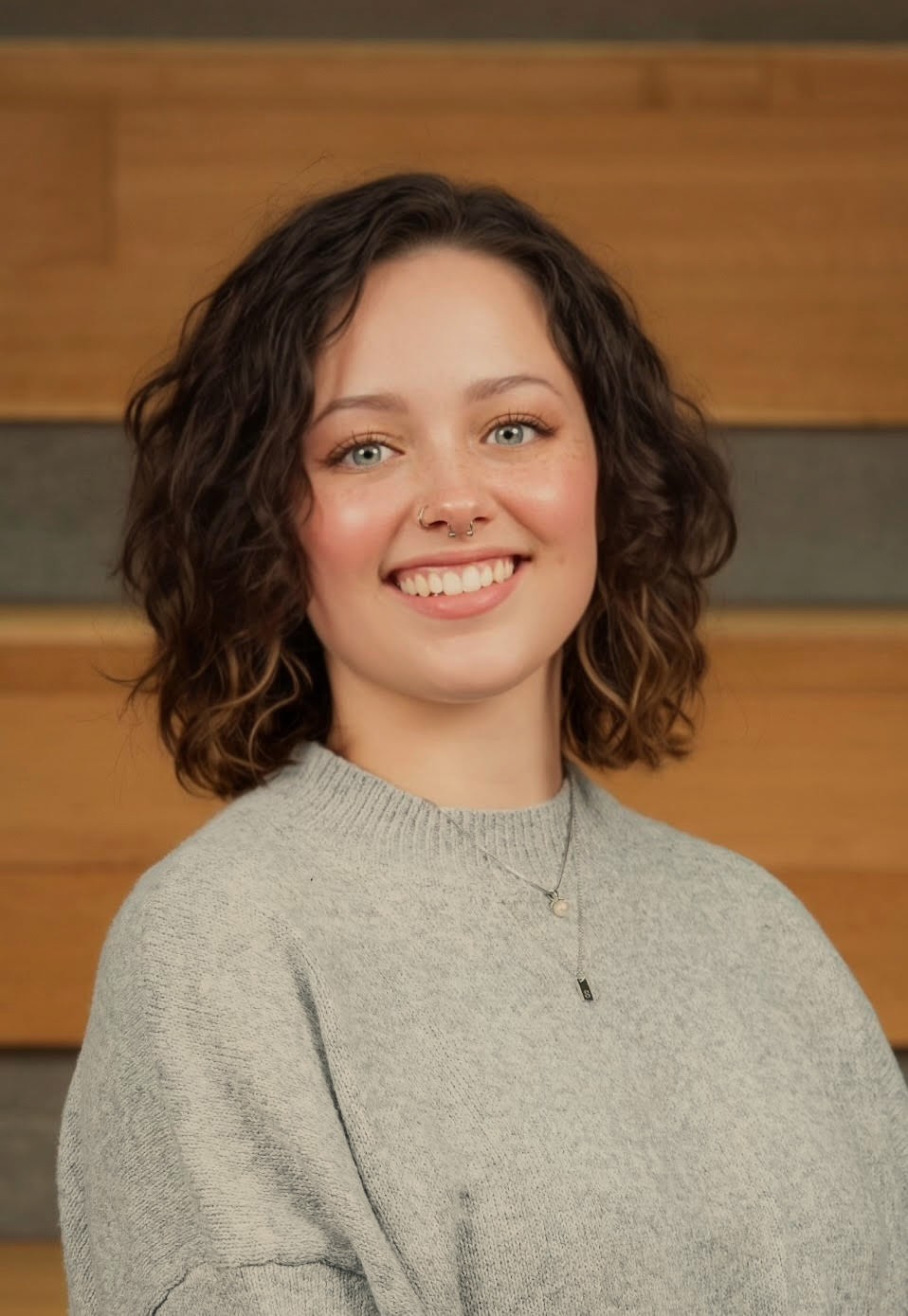
Vanessa Case, MS-CEP, MSHA
Program Manager
Vanessa Case is a Program Manager at the Farley Health Policy Center and a Senior Research and Policy Analysis Professional in the Department of Family Medicine at the University of Colorado School of Medicine. She holds a Master of Science in Clinical Exercise Physiology degree from the University of Wisconsin-River Falls and a master’s degree in health administration from Grand Canyon University. Her interests focus on improving healthcare accessibility for groups facing challenges with the current healthcare system.

Hannah Crook, PhD
Medicaid Policy Director
Dr. Hannah Crook is a Senior Instructor in the Department of Pediatrics at the University of Colorado Anschutz Medical Campus and serves as the Medicaid Policy Director at the Farley Health Policy Center. In this role, she leads the Center's Medicaid-related initiatives and fosters collaboration with state agencies and other stakeholders. She has previous experience in payment reform, social determinants of health, and mixed methods research. She is committed to policy-relevant research that improves the wellbeing of Medicaid beneficiaries both in Colorado and nationally. Dr. Crook holds a PhD in Health Policy and Health Services Research from Vanderbilt University.
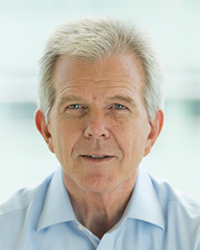
Frank deGruy, III, MD, MSFM
Senior Scholar
Dr. deGruy has chaired the family medicine department since 1999, and before this he chaired the University of Alabama Department of Family Medicine. He has served as president of the Collaborative Family Healthcare Association and the North American Primary Care Research Group. Dr. deGruy is a board member for the National Network of Depression Centers, the Family Physicians’ Inquiries Network, and of the Colorado Institute of Family Medicine. He chairs the National Integration Academy Council, and sits on the editorial board for The Annals of Family Medicine and Families, Systems and Health. He is the created and writes Precipice: Pushing the Edge of Family Medicine, an annual publication that addresses hard problems in primary care, and he is a member of the National Academy of Medicine.
Emma Gilchrist, MPH
Deputy Director
Ms. Gilchrist is an instructor in the CU Department of Family Medicine at the University of Colorado School of Medicine. As deputy director of the Farley Health Policy Center, she oversees the planning, execution, and completion of its programs and projects. She has been a project manager and qualitative researcher for federal, state, and foundation grants and contracts; and works to improve health through policies that advance behavioral health integration, prevention and health promotion, community engagement, and workforce development. Ms. Gilchrist enjoys mentoring students and fellows. She received her Master of Public Health degree from the University of Michigan, and she previously worked at the University of Michigan Center for Managing Chronic Disease.
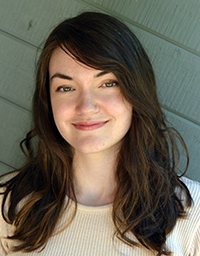
Mary Taylor (M.T.) Goeltz
Graduate Research Assistant
Mary Taylor (M.T.) Goeltz is a fourth-year doctoral student in the Clinical-Health Psychology Ph.D. program at the University of Colorado, Denver. In addition to her work as a graduate research assistant in the Farley Health Policy Center, she works as a research assistant in the UC Denver Infant Lab and as an extern at Children's Hospital Colorado. She received her Master's in Clinical-Health Psychology from UC Denver in 2024 and previously worked in developmental and clinical research labs at UC Santa Cruz and the University of Iowa. M.T. has clinical experience working with children and adolescents in outpatient and hospital settings. She is passionate about promoting access to evidence-based interventions in underserved populations and improving the wellbeing of families via policy and program development. Her research focuses on understanding mechanisms that promote positive socioemotional adjustment for infants and children, particularly in the context of mental health concerns in their caregivers.
Stephanie Gold, MD, FAAFP
Scholar
Dr. Gold is a practicing family physician at Denver Health and an associate professor in the University of Colorado Department of Family Medicine. Her research and policy work focus on system transformation to improve the whole heath of individuals, families, and communities, including through payment reform for primary care and integrating behavioral health. She coordinates the Farley Health Policy Center’s health policy journal club. Dr. Gold completed medical school at the University of Virginia; family medicine residency at the University of Colorado, Denver Health Track; and a health policy fellowship with the Farley Health Policy Center following residency. She is a past president of the Colorado Academy of Family Physicians and a 2023-2025 James C. Puffer/ American Board of Family Medicine fellow with the National Academies of Medicine.
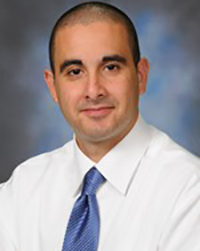
Daniel S. Goldberg, JD, PhD
Education Director
Daniel S. Goldberg is trained as an attorney, an historian, and a public health ethicist. He uses methods drawing primarily from public health law, public health ethics, and the history of public health (focusing on 19th and early 20th c. US). His specific areas of expertise include the social determinants of health and health inequities, structural violence and health, chronic illness and noncommunicable disease, and structural stigma. He has studied chronic pain for 15 years and has focused much of his recent work on using legal and policy mechanisms to ameliorate structural stigma. He has also developed a research program using tools from the emerging discipline of legal epidemiology to advance health justice. Finally, he has a line of research on conflicts of interest as a population health hazard, regulatory capture as governance failure, and the manufacture of doubt. Most recently, he has applied these lenses to problems of traumatic brain injury and collision sports.
Larry A. Green, MD
Senior Scholar
Dr. Green is distinguished professor of family medicine and the Epperson-Zorn Chair for Innovation in Family Medicine and Primary Care at the University of Colorado. As a family physician, his roles have included medical practice, residency director, investigator, teacher, and department chair. He directed the RWJF national program office, Prescription for Health, focused on unhealthy behaviors in primary care practice. He also directed the Colorado Health Foundation initiatives, Advancing Care Together and Upstream! Together, aiming to change practices to provide integrated care and prevent mental, emotional, and behavioral problems. He founded and directed the Robert Graham Policy Center, and is a regular member of the National Academy of Medicine. His current work focuses on redesigning how clinical practice, health professions education, physician certification, and clinical research are done.
R. Mark Gritz, PhD
Director of Operations
A Colorado native, Dr. Gritz received his PhD in economics from Stanford University. He has more than 30 years’ experience in directing and managing demonstrations, evaluations, research, and technical assistance projects designed to improve economic, health and other outcomes affecting vulnerable populations. Many projects involved youth, veterans, and the elderly. D. Gritz has held several corporate management positions, directing more than 100 scientific and technical staff, managing the financial performance of international business units and intellectual property portfolios. Current work focuses on healthcare value and its association with socio-economics factors to rapidly respond to research and policy analysis needs of government agencies in Colorado.

De'Janae' Guillory-Williams, MPH
Program Manager
De’Janae’ Guillory-Williams is a Research Services Senior Professional in the CU Department of Family Medicine at the University of Colorado School of Medicine. In her role as a Program Manager at the Farley Health Policy Center, she is responsible for managing and monitoring programs and projects throughout their life cycles. De’Janae’ holds a Master of Public Health from the University of Colorado and earned a Bachelor of Science in Biology with a Pre-Medicine concentration from Florida Agricultural and Mechanical University. She brings a strong background in program and project management, as well as expertise in both qualitative and quantitative research, data analysis, and data management. Her professional interest centers on public health policy, particularly initiatives that promote health equity.
Sarah Hemeida, MD
Scholar
Dr. Hemeida is an assistant professor in the CU Department of Family Medicine and practicing family physician, caring for low-income and indigent populations at Denver Health, one of the largest safety-net hospitals systems in the country. She joined the Farley Health Policy Center as its first policy fellow in collaboration with the Robert Graham Center of Washington, DC. Dr. Hemeida completed a NRSA primary care research fellowship, and earned her MPH with a focus in health systems management and policy. Her interests lie in primary care and integrated behavioral health, workforce and education, and the social determinants of health. She is also a passionate dancer, and travels nationally to perform and instruct in various Afro-Latin dances when time permits.
Lauren S. Hughes, MD, MPH, MSc, MHCDS, FAAFP
State Policy Director
Dr. Lauren S. Hughes is the state policy director of the Farley Health Policy Center and associate professor of family medicine, both at the University of Colorado, where she researches how to strengthen primary care infrastructure, transform rural health care delivery, and advance behavioral health integration. Dr. Hughes previously served as Deputy Secretary for Health Innovation in the Pennsylvania Department of Health, where she launched the state’s Prescription Drug Monitoring Program and the Pennsylvania Rural Health Model, a new payment and delivery model co-designed with the CMS Innovation Center that transitions rural hospitals from fee-for-service to multi-payer global budgets. Dr. Hughes is a former chair of the American Board of Family Medicine and an alumna of the Robert Wood Johnson Foundation Clinical Scholars Program. She currently serves as chair of the Rural Health Redesign Center Organization Board of Directors and is a member of the Primary Care Payment Reform Collaborative convened by the Colorado Division of Insurance. In 2018, she was selected as a Presidential Leadership Scholar by Presidents Clinton and Bush, and in 2023, she was named as the co-chair of the National Academies of Sciences, Engineering, and Medicine Standing Committee on Primary Care.
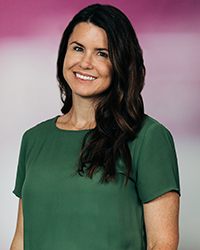
Jessica Kenny, PhD
Assistant Professor, Department of Psychiatry, University of Colorado School of Medicine
Director of Psychology Postdoctoral Fellowship Training, Children’s Hospital Colorado
Dr. Jessica Kenny, PhD, is an Assistant Professor in the Department of Psychiatry within the Colorado School of Medicine, a licensed clinical psychologist, and the Director of Psychology Postdoctoral Fellowship Training at Children’s Hospital Colorado. Her area of expertise is integrated behavioral health for youth and families in primary care and other medical specialties. She is committed to increasing access to behavioral health, providing trauma-informed, culturally sensitive care, and promoting justice and health equity for all. Dr. Kenny is involved with training, supervision, and teaching for psychology and medical trainees, program development and outcomes evaluation, and systems-level policy and advocacy for youth mental health. Her current research involves factors related to addressing adolescent depression and suicidality in pediatric primary care, best-practices in psychology training, and optimal multidisciplinary care for complex pediatric patients and their families.
Stephanie Kirchner, MSPH, RD
Practice Transformation Program Manager
Stephanie Kirchner specializes in community engagement and practice transformation with expertise in stakeholder engagement, consensus building, and behavioral health integration. She is a Senior Instructor at the University of Colorado Department of Family Medicine, and her work supports practice and community teams in the adoption of sustainable, evidence-based, patient-centered policy and research. She has been working in practice transformation, and policy translation since 2006, collaborating with partners and stakeholders to improve health and access to high quality primary care.
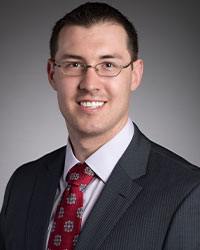
Kyle Leggott, MD
Scholar
Dr. Kyle Leggott is assistant professor at the CU Department of Family Medicine and family physician with health politics experience whose expertise includes policy development and translation, the intersection of policy with state-based health care legislation, and innovative approaches to addressing healthcare reform. He seeks progressive and innovative approaches to address health inequities by promoting systems based and policy level interventions. Dr. Leggott is an assistant professor of family medicine at the University of Colorado, where he recently finished a fellowship in health policy and politics. Dr. Leggott serves as a board member for the Colorado Academy of Family Physicians and is a physician blogger for the American Academy of Family Physician's Fresh Perspective blog. He provides both outpatient and inpatient care to patients, and, teaches family medicine residents at the University of Colorado.

Keila Lopez MD, MPH
Child Health Policy Scholar
Dr. Lopez is currently a professor of pediatrics in the Section of Pediatric Cardiology at Colorado Children’s Hospital, where she serves as the director of faculty development for the heart institute, as well as the Child Health Policy Scholar for the Farley Center. Following her residency in pediatrics at the University of Chicago, she completed the Commonwealth Fund Fellowship at Harvard School of Public Health in Minority Health Policy and Healthcare Management. She then completed a fellowship in pediatric cardiology with a focus on cardiovascular imaging at Baylor College of Medicine/Texas Children’s Hospital. Dr. Lopez’s clinical and research portfolios reflect a longstanding commitment to addressing health disparities. She has led teams to conduct multidisciplinary work using large databases and GIS mapping to better understand the connection between health, socioeconomic status, neighborhood level factors and access to quality health care. She actively participates in health related educational town halls in Spanish and Portuguese, and has provided education both nationally and internationally on public health and health policy related topics, as well as community level initiatives focused on underserved populations.

Laurie Munro, MA
Senior Education Coordinator
Bio: Laurie Munro is a biologist by training and enjoys using an equity focus and best practices in planning, developing, and improving educational programs and systems. After a ten-year career researching head injury at UCHSC, she spent another ten years teaching anatomy and physiology to undergraduate pre-health career students at one of the most diverse colleges in Colorado, Community College of Aurora. Witnessing the effects of disparities in students’ educational backgrounds motivated her to enter the CU Doctor of Education in Leadership for Educational Equity program. Ms. Munro also supports the educational programs for the Center for Bioethics and Humanities.

Julia Murphy, MD MHB
Junior Faculty Fellow
Dr. Murphy is a Junior Faculty Fellow focused on Health Policy in the Department of Family Medicine at the University of Colorado (CU) School of Medicine. She earned her MD and Master’s in Medical Humanities and Bioethics from the Feinberg School of Medicine at Northwestern University and completed her residency in Family Medicine at CU in 2025. Julia is a broad-scope family doctor dedicated to promoting health within her communities. She views health as the ability for people to thrive—to find joy, love, and enthusiasm while having the capacity to participate in life as they choose. She is passionate about health policy education, health equity, and creating systems that enable joy in both patients and providers.

Vanessa Reeves, MA
Center Coordinator
Vanessa Lawrence Reeves started her University of Colorado Anschutz journey at the CCTSI Community Engagement and Health Equity Core. Her role assisted with the work of the Community Engagement Core's programs and special projects from an administrative management lens. Prior to the University, Vanessa was the Special Projects Lead for the Associate Vice President and Executive Director of the Harvard Alumni Association. Vanessa received her Master's at City University, London, in Cultural Policy and Arts Business Management. Prior to moving to Denver, she held various roles supporting private and nonprofit organizations with successful process improvement and implementation. Notably, she was a part of the inaugural team of the Smithsonian National Museum of the American Indian.
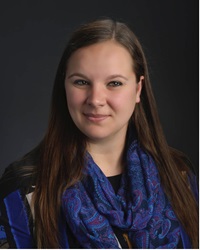
Alison Reidmohr MA
Communications Officer
Alison Reidmohr has worked in communications and health policy for more than 10 years in Montana and Colorado. After moving to Colorado in 2017, she started work as the tobacco communications strategist at the Colorado Department of Public Health and Environment, leading statewide media campaigns, including those promoting the Colorado QuitLine and Tobacco Free Colorado. She was promoted to deputy communications director and led CDPHE’s COVID-19 prevention marketing efforts through 2020. Her focus and expertise lie in policy and legislative communications, communications strategy, and public health marketing. In 2022, she earned her master of arts degree in communication from the University of Colorado, Denver, after conducting original research on Colorado’s digital contact tracing application, CO Exposure Notifications. She works full time for the Farley Health Policy Center, for which she leads all communications activities.

Sarah Staron, MPA
Sarah Staron manages the Collaborative Community Response Initiative (CCRI), a whole health project seeking to redesign our care systems around asking people "What matters to you?" rather than "What's the matter with you?" Sarah has been working with the CCRI leadership team since 2021, and was formally hired as the full-time project manager in August 2023 to support four communities across the state in developing localized plans to implement the CCRI whole health framework. She brings over a decade of experience in violence prevention across private and public sectors, nonprofit management, systems development, community engagement. In 2020, Sarah earned a master’s in public administration and gender violence from the University of Colorado Denver. Since then, she has worked in health equity policy at the Colorado Capitol to fund and foster trauma-informed systems, and one day, create a world without violence. Last but certainly not least, Sarah is an avid color-coder, lover of rainbows, and a huge fan of the Renaissance Faire.

Kimberly Wiggins, MA, M.Ed., PhD Student
Data Analyst, Instructor
Kimberly Wiggins is an instructor in the CU Department of Family Medicine at the University of Colorado School of Medicine and is in the dissertation stage of earning a PhD in Applied Statistics and Research Methods from the University of Northern Colorado. She earned a Master’s of Arts in English Literature from King’s College, University of London, followed by a Master’s of Education in Measurement, Evaluation, Statistics, and Assessment from the University of Illinois Chicago. She brings more than two decades of impact improving outcomes in education through evaluation, assessment, and program management and a commitment to advance knowledge through the construction of equitable, diverse learning networks. She specializes in identifying and applying appropriate statistical methodologies to inform decisions, evaluate impact, and identify needs. She is thrilled that her current work supports CU’s practice transformation initiatives.
